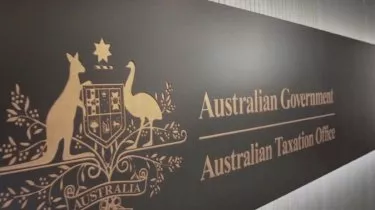Invest
ATO flags crackdown on crypto
Cryptocurrency is catching on fast in Australia and accountants need to be alert to the tax implications, says the ATO.
ATO flags crackdown on crypto
Cryptocurrency is catching on fast in Australia and accountants need to be alert to the tax implications, says the ATO.

Trades in cryptocurrency leapt 64 per cent in 2021 and the ATO is using data matching to make sure nothing slips through the net, acting assistant commissioner Sylvia Gallagher said last week.
With more than half a million Aussies buying, selling or exchanging digital coins, she said: “If you’re not already paying attention then you really should be.”
“It’s something that people are starting to get into,” Ms Gallagher told the Accountants Daily Strategy Day in Sydney. “My kids’ friends all have crypto coins, and they’re 18!”
She said the ATO has been using data matching on crypto since 2019 and had transaction records going back to 2014.

“We’re keeping a really close eye on it,” she said.
“We have a lot of information and we do use this data to ensure that people are meeting their tax obligations and there’s a level playing field.”
Ms Gallagher said accountants should check with their clients about cryptocurrency activity and stressed that for the purposes of assessment for capital gains tax, three types of transaction should be recorded:
- Selling or gifting crypto
- Trading or exchanging crypto, including one digital currency for another
- Converting crypto to a fiat currency, such as Australian dollars
Depending on the circumstances, different tax treatments would apply.
Where crypto was transferred from one wallet to another with maintenance of ownership it would not attract CGT unless the holding was reduced, for example by transaction fees. In that case it became a disposal, and hence a CGT event.
However, if crypto was disposed as part of a business then the profit was assessable as income, not CGT. Also if a business or sole trader was paid in crypto, then it was treated as income (and valued in Australian dollars).
Where crypto was sold or exchanged in the ordinary course of doing business, trading stock rules applied. The proceeds from the sale of cryptocurrency held as trading stock in a business were ordinary income, and the cost of acquiring cryptocurrency held as trading stock was deductible.
In addition, she said: “Gains or losses from disposing of a crypto for personal use is not a capital gains transaction.”
With 600,000 Australians now holding digital currency, Ms Gallagher said the ATO website contained detailed guidelines on the treatment.

Cryptocurrency
Binance enhances user experience by introducing new fiat payment channels for Australians
In a significant move to streamline cryptocurrency transactions for Australian users, Binance Australia has announced the launch of direct fiat deposits and withdrawals via PayID and bank transfersRead more

Cryptocurrency
Institutional adoption and clearer regulation drive deeper integration of digital assets into mainstream finance in 2026
In a recent outlook, Binance Australia has highlighted the steady maturation of the digital asset industry, forecasting deeper integration into mainstream financial markets by 2026. The company ...Read more

Cryptocurrency
Australian investors embrace crypto as a core growth strategy
In a significant shift within the investment landscape, cryptocurrency has emerged as a key component of portfolio diversification and long-term wealth creation for Australian investorsRead more

Cryptocurrency
Ethereum and Niche Tokens Give Australia a Unique Edge: Kraken’s 2025 Wallet Analysis
Kraken, a prominent and secure global cryptocurrency platform, has unveiled a comprehensive analysis of millions of wallets from its Australian clientele, showcasing unique trends in crypto asset ...Read more

Cryptocurrency
Gemini strengthens Australian presence with new leadership and AUSTRAC registration
In a significant move to bolster its presence in the Asia-Pacific region, global cryptocurrency platform Gemini has announced a strategic expansion in Australia. This development includes the ...Read more

Cryptocurrency
Asset managers eye $235bn tokenisation opportunity as TradFi and DeFi converge
In a striking revelation, a global survey conducted by Calastone has unveiled a $235 billion opportunity for tokenised funds, highlighting a significant convergence between traditional finance ...Read more

Cryptocurrency
Big four bank pilots crypto‑backed mortgages: what it means for lenders, borrowers and the market
An Australian big four bank is trialling home loans secured by units in a regulated Bitcoin ETF — a cautious bridge between digital assets and traditional credit. If executed well, the model could ...Read more

Cryptocurrency
Webull launches cryptocurrency trading for Australian investors
Webull Securities Australia Pty Ltd, a subsidiary of Webull Corporation, has unveiled its cryptocurrency trading platform for Australian users, marking a significant expansion in the company’s ...Read more

Cryptocurrency
Binance enhances user experience by introducing new fiat payment channels for Australians
In a significant move to streamline cryptocurrency transactions for Australian users, Binance Australia has announced the launch of direct fiat deposits and withdrawals via PayID and bank transfersRead more

Cryptocurrency
Institutional adoption and clearer regulation drive deeper integration of digital assets into mainstream finance in 2026
In a recent outlook, Binance Australia has highlighted the steady maturation of the digital asset industry, forecasting deeper integration into mainstream financial markets by 2026. The company ...Read more

Cryptocurrency
Australian investors embrace crypto as a core growth strategy
In a significant shift within the investment landscape, cryptocurrency has emerged as a key component of portfolio diversification and long-term wealth creation for Australian investorsRead more

Cryptocurrency
Ethereum and Niche Tokens Give Australia a Unique Edge: Kraken’s 2025 Wallet Analysis
Kraken, a prominent and secure global cryptocurrency platform, has unveiled a comprehensive analysis of millions of wallets from its Australian clientele, showcasing unique trends in crypto asset ...Read more

Cryptocurrency
Gemini strengthens Australian presence with new leadership and AUSTRAC registration
In a significant move to bolster its presence in the Asia-Pacific region, global cryptocurrency platform Gemini has announced a strategic expansion in Australia. This development includes the ...Read more

Cryptocurrency
Asset managers eye $235bn tokenisation opportunity as TradFi and DeFi converge
In a striking revelation, a global survey conducted by Calastone has unveiled a $235 billion opportunity for tokenised funds, highlighting a significant convergence between traditional finance ...Read more

Cryptocurrency
Big four bank pilots crypto‑backed mortgages: what it means for lenders, borrowers and the market
An Australian big four bank is trialling home loans secured by units in a regulated Bitcoin ETF — a cautious bridge between digital assets and traditional credit. If executed well, the model could ...Read more

Cryptocurrency
Webull launches cryptocurrency trading for Australian investors
Webull Securities Australia Pty Ltd, a subsidiary of Webull Corporation, has unveiled its cryptocurrency trading platform for Australian users, marking a significant expansion in the company’s ...Read more








